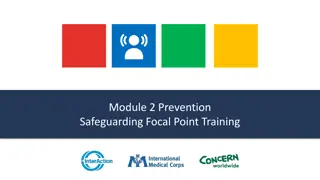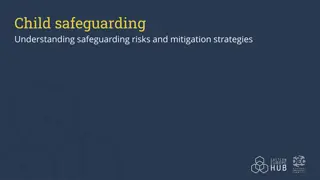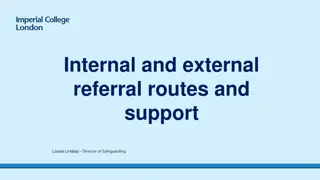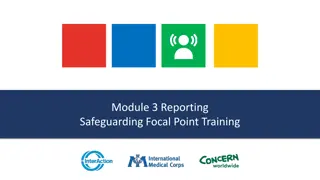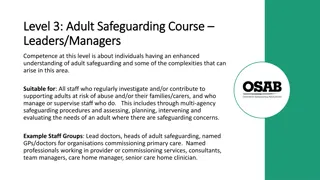
Understanding Mental Capacity Act in Health and Social Care Practice
Explore the key aspects of the Mental Capacity Act (MCA) in England and Wales, its importance in health and social care, and the principles that underpin decision-making processes. Gain insights into safeguarding, best interests, and supporting individuals who may lack capacity.
Download Presentation

Please find below an Image/Link to download the presentation.
The content on the website is provided AS IS for your information and personal use only. It may not be sold, licensed, or shared on other websites without obtaining consent from the author. If you encounter any issues during the download, it is possible that the publisher has removed the file from their server.
You are allowed to download the files provided on this website for personal or commercial use, subject to the condition that they are used lawfully. All files are the property of their respective owners.
The content on the website is provided AS IS for your information and personal use only. It may not be sold, licensed, or shared on other websites without obtaining consent from the author.
E N D
Presentation Transcript
Mental Capacity At a Glance For Professionals 1
Introduction This training presents an overview of the Mental Capacity Act (MCA) ????, which is important to health and social care practice. The MCA has been in force since ???? and applies to England and Wales. The primary purpose of the MCA is to promote and safeguard decision-making within a legal framework. It does this in two ways: 2
Ground Rules Confidentiality Respect each other s views Time keeping Please switch your phones to silent Please ask questions lots of questions. 3
Aim and Objectives To increase your overall understanding of Mental Capacity Act and Best Interest within your setting. Aim: Increase your overall understanding of safeguarding and child protection in relatioIncre overall understanding of safeguarding and child protection in relation to your setting. r setting. 4
Introduction By empowering people to make decisions for themselves wherever possible, and by protecting people who lack capacity by providing a flexible framework that places individuals at the heart of the decision-making process. By allowing people to plan ahead for a time in the future when they might lack the capacity, for any number 5
Reach About two million people in England and Wales are thought to lack capacity to make decisions for themselves. They are cared for by around six million people, including a broad range of health and social care staff, plus unpaid carers. Those working in health and social care include: doctors, nurses, dentists, psychologists, occupational, speech and language therapists, social workers, residential and care home managers, care staff (including domiciliary care workers), and support workers (including people who work in supported housing). 6
Reach A lack of mental capacity could be due to: a stroke or brain injury a mental health problem dementia (1) a learning disability (2) confusion, drowsiness or unconsciousness because of an illness of the treatment for it substance misuse. 7
Five Key Principles The Act is underpinned by five key principles (Section 1, MCA). It is useful to consider the principles chronologically: principles 1 to 3 will support the process before or at the point of determining whether someone lacks capacity. Once you ve decided that capacity is lacking, use principles 4 and 5 to support the decision-making process. This Photo by Unknown Author is licensed under CC BY-SA 8
Principle 1: A presumption of capacity Every adult has the right to make his or her own decisions and must be assumed to have capacity to do so unless it is proved otherwise. This means that you cannot assume that someone cannot make a decision for themselves just because they have a particular medical condition or disability. 9
Principle 2: Individuals being supported to make their own decisions A person must be given all practicable help before anyone treats them as not being able to make their own decisions. This means you should make every effort to encourage and support people to make the decision for themselves. If lack of capacity is established, it is still important that you involve the person as far as possible in making decisions. 10
Principle 3: Unwise decisions People have the right to make decisions that others might regard as unwise or eccentric. You cannot treat someone as lacking capacity for this reason. Everyone has their own values, beliefs and preferences which may not be the same as those of other people. This Photo by Unknown Author is licensed under CC BY-NC- ND This Photo by Unknown Author is licensed under CC BY-NC-SA 11
Principle 4: Best interests Anything done for or on behalf of a person who lacks mental capacity must be done in their best interests. This Photo by Unknown Author is licensed under CC BY-NC-ND 12
Principle 5: Less restrictive option Someone making a decision or acting on behalf of a person who lacks capacity must consider whether it is possible to decide or act in a way that would interfere less with the person s rights and freedoms of action, or whether there is a need to decide or act at all. Any intervention should be weighed up in the particular circumstances of the case. 13
Assessment of capacity and best interests decision-making (Sections 2 4, MCA) When should capacity be assessed? You might need to assess capacity where a person is unable to make a particular decision at a particular time because their mind or brain is affected by illness of disability. Lack of capacity may not be a permanent condition. Assessments of capacity should be time- and decision-specific. You cannot decide that someone lacks capacity based upon age, appearance, condition or behaviour alone. 14
The test to assess capacity Two-stage functional test of capacity In order to decide whether an individual has the capacity to make a particular decision you must answer two questions: Stage 1. Is there an impairment of or disturbance in the functioning of a person s mind or brain? If so, Stage 2. Is the impairment or disturbance sufficient that the person lacks the capacity to make a particular decision. 15
Test to assess capacity The MCA says that a person is unable to make their own decision if they cannot do one or more of the following four things: understand information given to them retain that information long enough to be able to make the decision weigh up the information available to make the decision communicate their decision this could be by talking, using sign language or even simple muscle movements such as blinking an eye or squeezing a hand. 16
Test to assess capacity Every effort should be made to find ways of communicating with someone before deciding that they lack capacity to make a decision based solely on their inability to communicate. Also, you will need to involve family, friends, carers or other professionals. The assessment must be made on the balance of probabilities is it more likely than not that the person lacks capacity? You should be able to show in your records why you have come to your conclusion that capacity is lacking for the particular decision. 17
Best Interest Decision Making If a person has been assessed as lacking capacity then any action taken, or any decision made for or on behalf of that person, must be made in his or her best interests (principle 4). The person who has to make the decision is known as the decision-maker and normally will be the carer responsible for the day-to-day care, or a professional such as a doctor, nurse or social worker where decisions about treatment, care arrangements or accommodation need to be made. 18
What is best interests? The Act provides a non-exhaustive checklist of factors that decision-makers must work through in deciding what is in a person s best interests. A person can put his/her wishes and feelings into a written statement if they so wish, which the person determining capacity must consider. In addition, people involved in caring for the person lacking capacity have to be consulted concerning a person s best interests. 19

